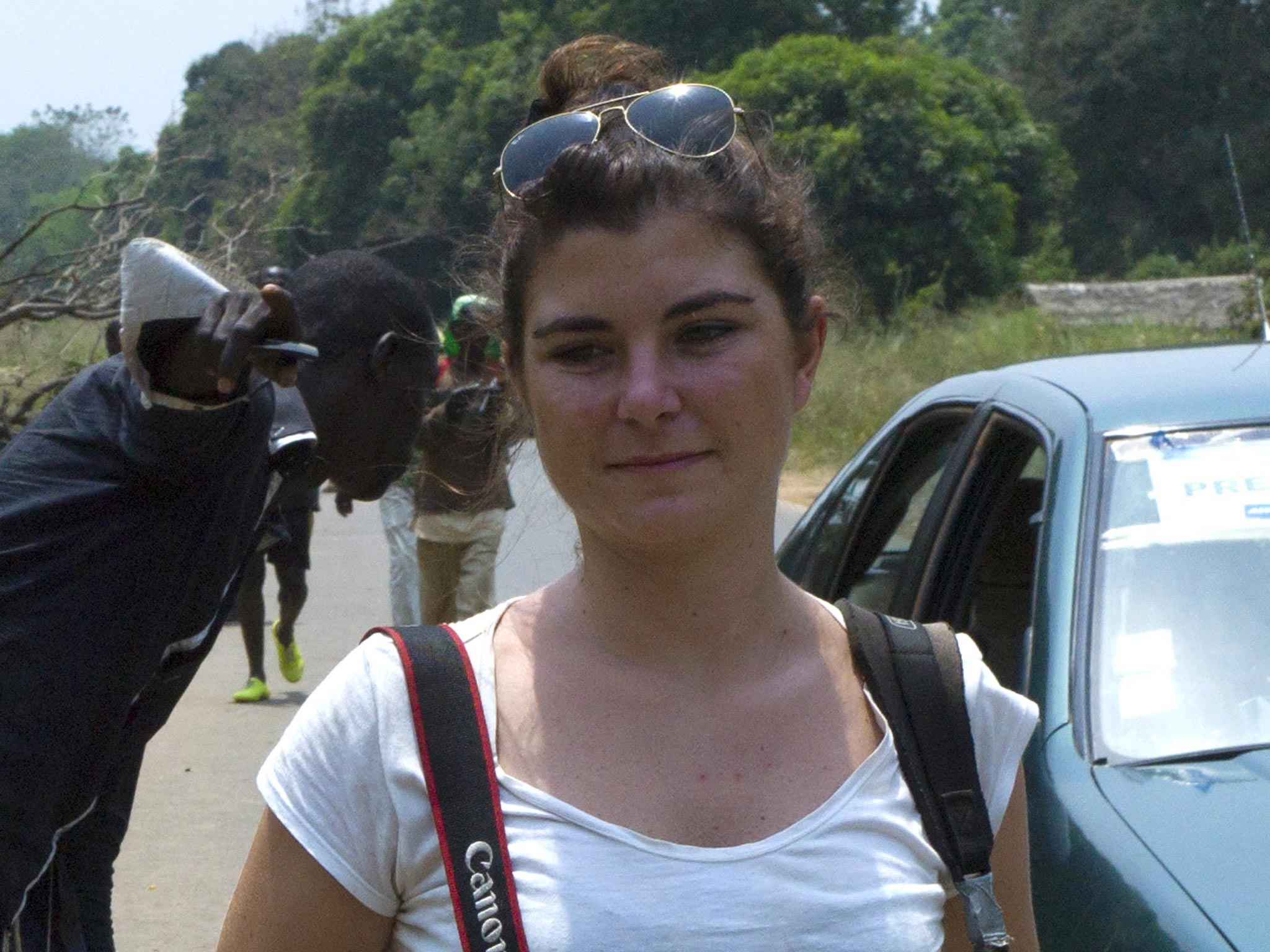Camille Lepage: Photojournalist whose career was dedicated to chronicling conflicts often underreported by the mainstream media

Camille Lepage was a 26-year-old photojournalist who had a passion for reporting on stories the mainstream media tended to overlook, believing it her duty to shed light on the world’s ignored conflicts. “I can’t accept that people’s tragedies are silenced simply because no one can make money out of them,” she said. “So I decided to do it myself and bring some light to them no matter what.”
Her determination and heroism in trying to inform the world of the violence against civilians and the reprisal killings in lawless Central African Republic ultimately cost her her life. Her body was discovered, along with those of four villagers, by French peace-keeping troops in a village near the town of Bouar, in the west of CAR, in a vehicle driven by 10 armed Christian militia fighters known as anti-balaka (“anti-machete” in the local languages). Two Central African journalists were killed earlier this month, but Lepage was the first western journalist to be killed in the fighting since France deployed troops there last December.
“Everything will be done to uncover the circumstances of this assassination and to track down who murdered our compatriot,” said the French President, François Hollande.
It is unclear who killed Lepage but a military source in the region said that Christian militia were attacked by a group of armed Fulani herdsman who roam the area in what he believed was tit-for-tat killings. In her last tweet, Lepage said she had joined anti-balaka fighters, an umbrella group of various militias, mostly uneducated Christian youths. They were going to the region of Amada Gaza, where more than 150 people had been killed since March by the Seleka, an alliance of predominantly Muslim rebel militia factions and mercenaries from neighbouring countries.
“We left at 3:30am to avoid the Misca [African peace-keeping] checkpoints and it took us 8 hours by motorbike as there is no proper road to reach the village,” she wrote in a tweeted photo caption. She added that six others had been killed two days earlier.
The civil war in Central African Republic, a former French colony which has seen little but political instability and conflict since its independence in 1960, began in December 2012 when the Seleka overthrew the government of President François Bozizé for failing to abide by peace agreements signed in 2007 and 2011 after several years of civil war. However, there remained an underlying malaise and continued outbreaks of violence.
Troops from neighbouring countries had been sent as part of the Economic Community of Central African States force (or Fomac) to help Bozizé’s government stave off a potential Seleka advance on Bangui. The capital was captured in March last year; Bozizé fled the country and the rebel leader Michel Djotodia declared himself president.
As the conflict intensified last December and the anti-balaka militias gained influence, threats intensified against journalists accused by both sides of playing into the hands of one or the other faction. Many went into hiding or had to flee the country after receiving death threats. Most local journalists now no longer work and those who do are regularly threatened.
Security remained an issue and human rights abuses, including the use of child soldiers, rape, torture, extra-judicial killings and forced disappearances continued amid renewed fighting between the minority Muslim Seleka and Bozizé’s anti-balaka coalition troop. Djotodia resigned in January, with Catherine Samba-Panza replacing him. Bozizé was later indicted for crimes against humanity and incitement to genocide.
The African Union and France have around 7,000 troops in the country, but with security deteriorating in recent months and around a quarter of CAR’s 4.6 million population displaced since March 2013, the EU has deployed troops to take control of security at the airport in Bangui. Lepage was drawn to covering “forgotten conflicts,” she said. “I want the viewers to feel what the people are going through. I’d like them to empathise with them as human beings, rather than seeing them as another bunch of Africans suffering from war somewhere in this dark continent.”
Born in Angers, western France, in 1988, Camille Lepage was educated locally before completing a BA in Journalism at Southampton Solent University. Her tutor, Andy Chatfield said, “We knew she was not afraid of putting herself in harm’s way… She was interested in people who were voiceless and powerless rather than the great and powerful.”
Despite her youth, Lepage had extensive experience. She worked in Europe before covering the 2011 Egyptian revolution. She moved to Juba in South Sudan, where she lived with the locals “with no electricity and little comfort,” so as “not to be different from them”. She captured the beginnings of the new sovereign state in July 2012, as well as recording the horrors of the fighting in the Nuba mountains. Lepage then moved to CAR to work on her new project and record the day-to-day lives of the victims of the conflict. A colleague said that “She showed enormous courage and had a knack of being at the centre of the action, such as making contact with former Seleka fighters in Bangui or covering disarmament operations.”
Lepage’s work had been published domestically and internationally, in, among others, The Sunday Times, Guardian, the BBC, Wall Street Journal and New York Times. She had also worked for several non-governmental organisations including Amnesty International and Médecins Sans Frontières. Andy Chatfield said: “her death, like other journalists’ deaths, should really stiffen our resolve to defend freedom of speech and make sure our governments defend it on our behalf.”
Martin Childs
Camille Lepage, photojournalist: born Anger, France 28 January 1988; died near Bouar, Central African Republic 13 May 2014.
Subscribe to Independent Premium to bookmark this article
Want to bookmark your favourite articles and stories to read or reference later? Start your Independent Premium subscription today.

Join our commenting forum
Join thought-provoking conversations, follow other Independent readers and see their replies